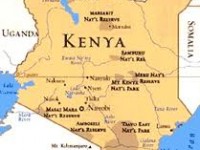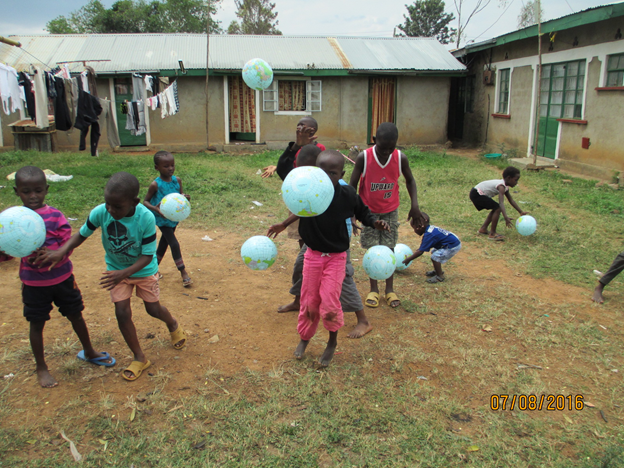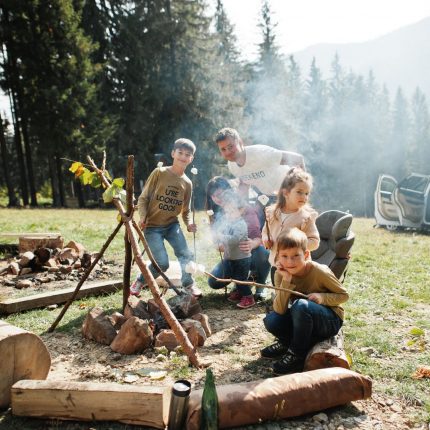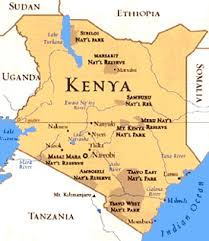
Kenya’s Dream of a Child Program
This is a guest blog post written by Beth Fine – http://imaginepurple.com
Though some homeschoolers may doubt their ability to provide proper guidance and materials for their children, can you imagine how illiterate Kenyan foster parents of AIDS orphans must feel trying to supply even minimal education to brighten the futures of their young wards?
Dream of a Child Community Development Program in Bondo, Kenya, has accepted that mammoth task. When Joseph Bwanah and Paul Sibuor of DACODEP interviewed caregivers of HIV/AIDS orphans, they found some children’s health diminished. Ignorance and distance to medical facilities had kept well-meaning guardians from adhering to complicated medicine regimes.
Since many community adults cannot read, Joseph and Paul began regularly visiting caregivers or holding classes to instruct them on health/hygiene, medicine dosages, and proper nutrition for the vulnerable orphans.
To some families, they now provide clothes and food from DACODEP’s own subsistence farming. Recently, to expand potential income generating opportunities, Joseph and Paul investigated fish farming. Soon they plan to offer vocational training to help older youth learn trades and other employment skills.
In 2013, associate professor at DePaul University Gabriele Strohschen introduced me to DACODEP and pegged illiteracy as the main key to meet its challenges. To confirm her own dedication, she admits filling her suitcases with books for each visit to Bondo. Agreeing with her assessment, I became involved but quickly found mailing books to Africa an expensive undertaking. Still over time, I have sent teacher resources and 10 copies each of the first eight Imasodes in my middle school mystery series.
Since English is Kenyans’ third language, I marveled at the younger “learners.” They comprehended my books written in PSAT level vocabulary and wrote group reports on the storyline. With minimal supplies, Bondo children receive instruction together, not individually. Their unsophisticated innocence, lack of western cultural perspective, and incisive questioning of my characters’ reactions, amazed me.
With an influx of books from various sources, DACODEP has now implemented an early grade reading program and a home library. These have improved the reading habit among adults and young learners.
 Bondo kids with globe balloons from my accountant and me
Bondo kids with globe balloons from my accountant and me
Now desiring a regular library and some computers with Wi-Fi to expose learners to global information, Joseph crafted a proposal to the U.S. National Endowment for Democracy. Although I prefer private initiatives or easy donation approaches like YouCaring.org, he considers outside funding critical to this program’s success. He understands that acceptance of his application may bring red tape and funding reports instead of freedom to continue practical work. Though often waiting months for paychecks from his own government, he remains admirably undaunted.
If you’ve never met Kenyans, Joseph demonstrates their deep quality. Recently, when he completed his computer certification, I sent him a graduation gift…with which he bought two goats. Though many Americans may barely fathom such wisdom, I think homeschoolers can appreciate such sacrifice.
To further experience these magnificent people, you might read 14 Cows for America a true tale about a young Kenyan visiting here during 9/11. To celebrate our country, he began growing a small herd. Carmen Agra Deedy rendered the story with collaborations from Wilson Kimeli Naiyomah and illustrations by Thomas Gonzales.
Latest Posts

As homeschooling continues to grow in popularity, more parents are taking on the challenge of providing a comprehensive education that not only meets academic standards but also prepares their…
Read more >
June has come and gone, and summer is in full swing! Whether you're traveling this summer or staying close to home, we hope you're enjoying this time with your family. We wanted this month's…
Read more >
Summer is an all-around favorite season for most people. In the U.S., it’s even more exciting for many of us since we get to celebrate Independence Day! The Fourth of July is a wonderful…
Read more >



